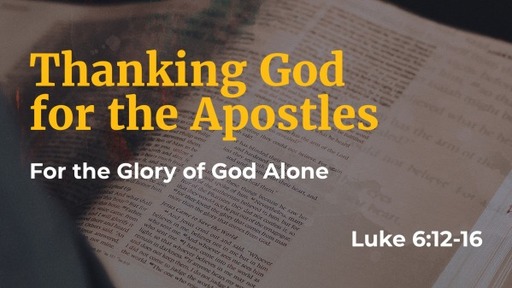Thanking God for the Apostles

Spending time with God is the essence of worship. Everything else is stage setting. We can be in God’s presence, corporately or alone, as Jesus was.
The transfer of authority from the Father to the Son is, in turn, transferred to his own apostles, so they function in an absolutely unique role in the church. No minister in the church today has the authority of an apostle nor do any of the great theologians. All defer to the authority of the apostles, which resides in the fact that they were set apart and commissioned by Christ.
In the ancient world a person who functioned in the role of an apostle was usually a representative of a king or some important political ruler, who had the authority to speak on behalf of his ruler. He was usually serving in the function of an emissary, much as an ambassador would serve today. The apostle carried with him the authority of the one who sent him. Now that is crucial to understanding the role of the apostle in the New Testament. Jesus elsewhere said, when he sent out the apostles, ‘Those who receive you, receive me. Those who will not receive you, do not receive me.’ In fact, Paul says that the foundation of the church is the prophets and the apostles, with Christ being the chief cornerstone (Eph. 2:20). The church is established on the basis of the teaching of the apostles, not because they are special in and of themselves, but because it is through the apostles that we get the word of Christ. Sometimes people comment: ‘I believe what Jesus said, but it is Paul that bothers me; I won’t listen to the apostle Paul.’ But, we don’t know anything that Jesus ever said, except through the message of the apostles. Therefore when we try to put Jesus against Paul we are simply putting one apostle against another. An apostle speaks not on the basis of his own authority, but on the basis of the one who commissions him.